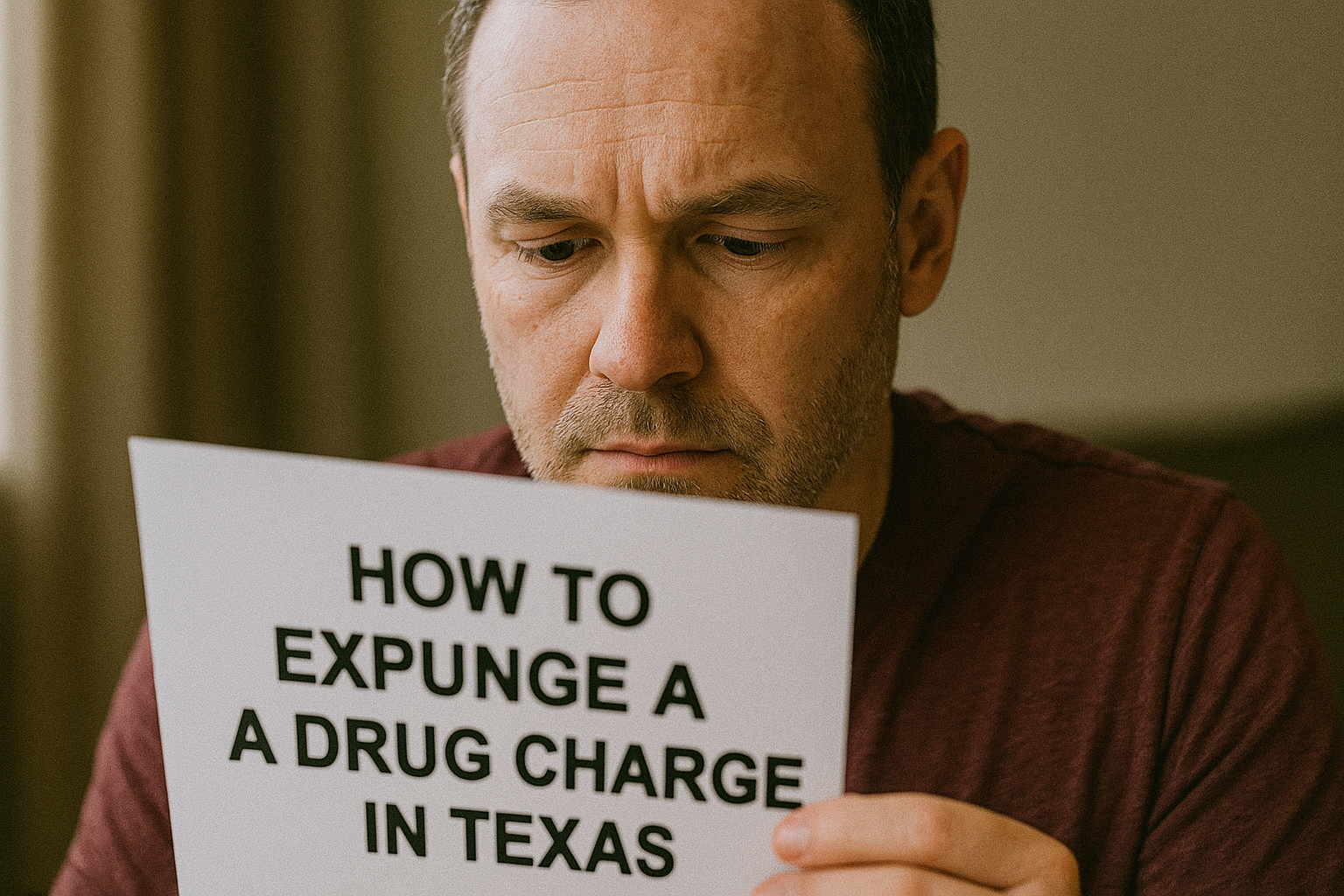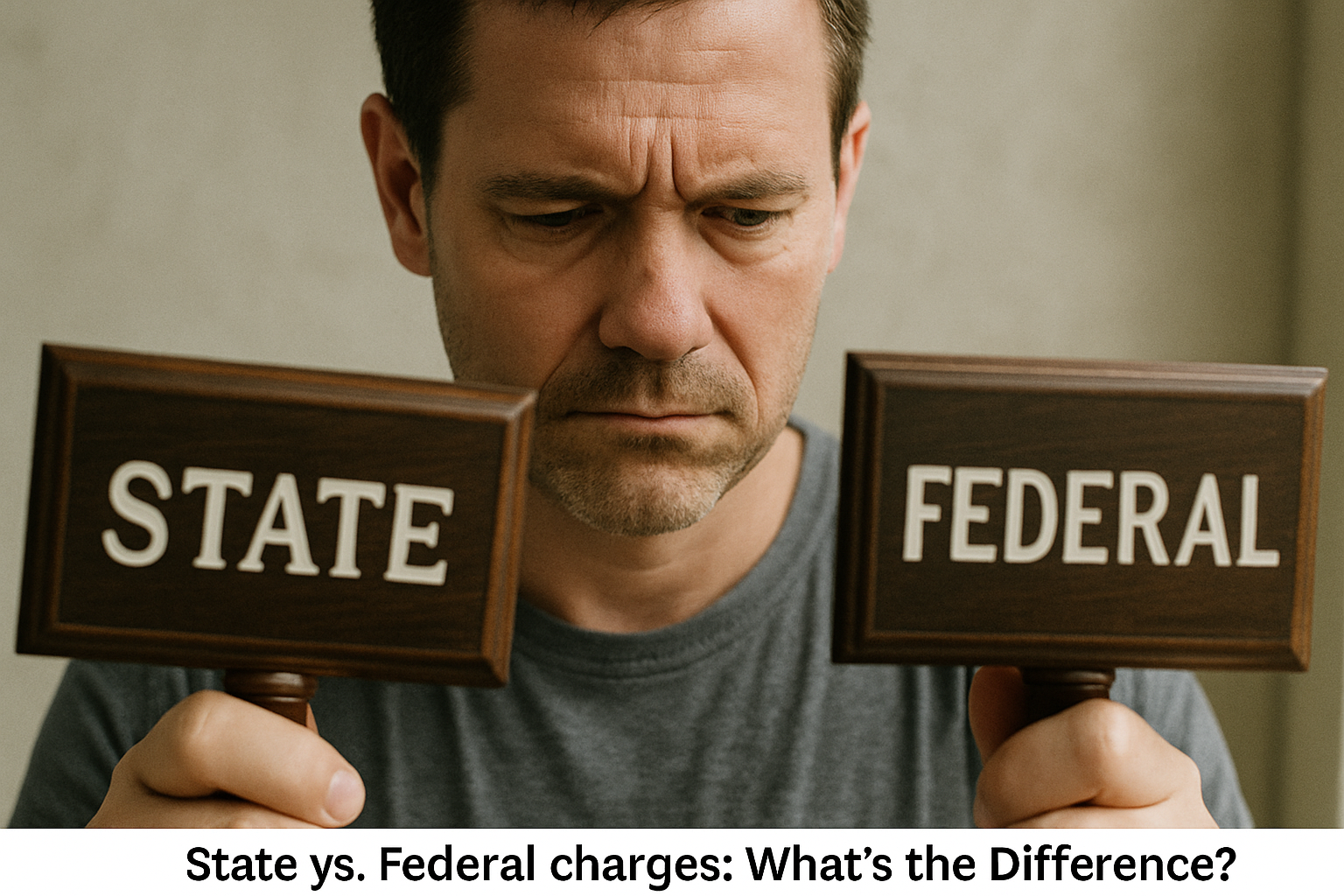How to Expunge a Drug Charge in Texas
Learn how to expunge a drug charge in Texas. Step-by-step guide to eligibility, waiting periods, and the expungement process. Contact an attorney near you today.

How to Expunge a Drug Charge in Texas
Being arrested for a drug crime can haunt you for years — even if you were never convicted.
But if you qualify, expungement can erase the record completely.
In Texas, expungement is your chance to wipe the slate clean and reclaim your future.
In this post you’ll learn:a
- Who is eligible for expungement
- What the expungement process looks like
- How an experienced attorney near you can make it faster and easier
Step 1: Understand Whether You’re Eligible for Expungement
Not every drug-related case qualifies for expungement in Texas. The first step is understanding whether your specific situation meets the eligibility requirements.
If you were arrested but never formally charged, you’re typically eligible for expungement. The same applies if your charges were dismissed, if you were acquitted at trial, or if you successfully completed a pretrial diversion program.
However, if you were convicted—meaning you were found guilty or pled guilty—you cannot have the record expunged, unless you later receive a pardon from the Governor.
Step 2: Gather Your Court and Arrest Records
Problem:
You can’t file without proof of what happened in your case.
Solution:
Collect:
- Arrest records
- Court disposition records
- Documentation of dismissal or acquittal
- Pretrial diversion completion certificates (if applicable)
Tip:
Your attorney can often retrieve these faster and with fewer hassles.
Step 3: Calculate Your Waiting Period (If Any)
Even if you're eligible for expungement, you might not be able to file right away. Texas law often requires a waiting period, and the length depends on how your case ended.
If you were acquitted—meaning found not guilty—you are immediately eligible to seek expungement. For dismissals, the waiting time varies:
- If your case involved a Class C misdemeanor, you’ll need to wait 180 days.
- For a Class B or A misdemeanor, the waiting period is typically 1 year.
- If the charge was a felony, you’ll need to wait 3 years after dismissal.
Step 4: File a Petition for Expunction
Problem:
Expungement isn’t automatic — you must formally ask the court.
Solution:
Your attorney will:
- Draft a Petition for Expunction.
- File it in the correct district court.
- Serve all required agencies (police, prosecutors, DPS, FBI, etc.).
Tip:
Proper service is critical — missing an agency can leave your records partially visible.
Step 5: Attend the Expunction Hearing (If Necessary)
Problem:
Sometimes the court requires a hearing.
Solution:
Your attorney will:
- Argue why you qualify for expungement.
- Handle any objections from prosecutors or agencies.
- Push for an immediate court order if no objections are raised.
Key takeaway:
Many expunctions go through without a hearing if there’s no opposition — but you must be prepared.
Step 6: Destroy or Remove All Records
Problem:
Even after the judge grants expungement, agencies must still physically destroy your records.
Solution:
The court sends certified orders to:
- Police departments
- Prosecutors
- Court clerks
- Texas Department of Public Safety
- FBI (if applicable)
Important:
Expungement legally requires these agencies to destroy or return all records — not just seal them.
Step 7: Verify That Your Records Are Cleared
Problem:
Mistakes happen. Some agencies may not act promptly.
Solution:
Your attorney can:
- Confirm that all local, state, and federal databases have complied.
- Follow up on any agencies that failed to update their records.
Tip:
Request a background check after the process is complete to ensure your name is clear.
Real-World Example
Example:
- You’re arrested for possession of a controlled substance.
- The prosecutor later dismisses the case due to lack of evidence.
- Your attorney waits 180 days, files for expungement, and the court grants it.
- All records are erased — and you can legally deny the arrest ever happened.
Result:
You move forward with clean employment, housing, and educational opportunities.
Why You Need an Attorney to Expunge Your Record
An experienced criminal defense attorney near you can:
- Confirm you are eligible for expungement
- Navigate the court system and paperwork correctly
- Speed up the process by negotiating waivers
- Protect your rights at every stage
- Ensure agencies fully erase your record
The Law Office of Ray Vazquez has helped Texans expunge charges — and knows how to make the process smooth, fast, and final.
Conclusion
A drug arrest shouldn’t follow you forever — and in Texas, it doesn’t have to.
If you qualify for expungement, you have the right to erase your past and move forward without the burden of a criminal record.
If you or someone you care about wants to expunge a drug charge:
Call the Law Office of Ray Vazquez today at (832) 343-8023 or visit rayvazquezlaw.com to schedule a confidential consultation with an experienced attorney near you.
Your future is too important to leave in the past.


